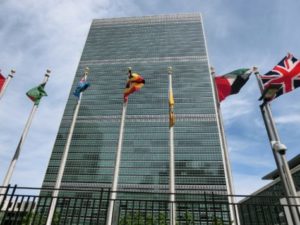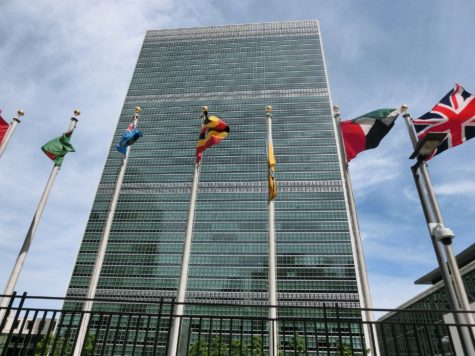HANOVER, N. H. — The United Nations may serve as a key facilitator in bringing world leaders together to discuss pressing issues, but a new study finds it’s actually been quite effective at spreading democracy and suppressing global conflicts, including wars, from happening.
Researchers at Dartmouth College and Ohio State University combed through 5,143 U.N. General Assembly voting records from 1946 through 2011, hoping to find the degree to which the body is competent in preventing conflict.

Overall, the U.N. is effective at promoting peaceful, diplomatic dialogue, the researchers found, despite a perception to the contrary among many.
“There is more nuance in voting records than was previously thought,” says researcher Skyler Cramner, professor of political science at Ohio State, in a news release. “The evidence demonstrates that the U.N. is more effective at achieving its mandate of avoiding wars than many experts think.”
The study looked at diplomatic priorities more so on a micro level than previous studies, many of which assumed that U.N. resolutions were reflective of the desires of individual states.
Through their data analysis, the researchers saw how certain voting alliances among nation states — termed “affinity communities”— were the undergirding for coalition building and cooperation across the U.N.
The biggest defined cluster of countries included Russia, Japan, China, and a number of Western European nations.
Throughout the history of the U.N., the researchers identified 15 instances of nearly complete solidarity amongst the body’s members. It should be noted that the United States was often one of the few countries to abstain from providing full support during these instances.
Ultimately, the more countries that backed a resolution, the more powerful its effect.
“While the U.N. obviously does not prevent all armed conflict, the affinity communities reduce the probability of conflict,” explains researcher Scott Pauls, chair of the Department of Mathematics at Dartmouth. “It is through this mechanism of intensified diplomatic interaction that the U.N. has historically been able to better achieve its primary goal of maintaining international peace and security.”
The study’s findings are published in the Oct. 15, 2017 edition of the journal Physica A.

Comments